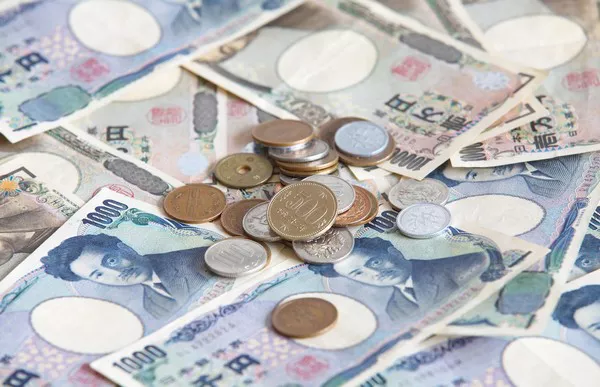Traveling abroad often involves exchanging currency to facilitate transactions and expenses in the destination country. Japan, with its unique culture and technological advancements, attracts millions of tourists annually. One common question among travelers is whether they can conveniently exchange their currency for Japanese yen at the airport. This article aims to delve into the dynamics of currency exchange services at airports, particularly focusing on the availability of yen exchange, associated costs, and alternative options for obtaining yen in Japan.
Understanding Currency Exchange at Airports:
Airports serve as primary gateways for international travelers, offering a range of services to cater to their needs. Currency exchange counters are a common sight in most major airports worldwide, providing travelers with the convenience of exchanging their money upon arrival or departure. These exchange services typically handle a variety of currencies, including popular ones like the US dollar, euro, British pound, and Japanese yen.
Availability of Yen at Airport Exchange Counters:
When it comes to obtaining Japanese yen at airport exchange counters, the availability may vary depending on several factors. Major international airports, especially those located in prominent tourist destinations like Tokyo, Osaka, and Kyoto, are more likely to offer yen exchange services. However, the availability of yen may be limited in smaller or less frequented airports.
Factors Influencing Yen Availability:
Airport Location: Airports in major cities and tourist hubs are more likely to have a higher demand for Japanese yen exchange services, thus increasing the likelihood of availability.
Flight Schedule: The timing of flights arriving from or departing to Japan can impact the demand for yen exchange at airport counters. Peak travel times may result in longer queues and potential shortages of certain currencies.
Currency Reserves: Airport currency exchange providers maintain a certain level of currency reserves based on anticipated demand. Fluctuations in demand or unexpected events can affect the availability of yen at these counters.
Economic Conditions: Macroeconomic factors, such as exchange rate fluctuations and economic stability, can influence currency exchange operations at airports.
Costs Associated with Airport Currency Exchange:
While airport currency exchange counters offer convenience, they often come with additional costs in the form of exchange rate markups and service fees. These costs can significantly impact the overall value obtained when exchanging currency. It’s essential for travelers to be aware of these costs and explore alternative options to minimize expenses.
Exchange Rate Markups: Airport exchange counters typically apply a margin to the exchange rate, resulting in rates that are less favorable compared to market rates. This markup represents the profit margin for the exchange service provider.
Service Fees: In addition to exchange rate markups, some airport exchange services may impose flat fees or percentage-based commissions on transactions. These fees can further reduce the amount of yen obtained by travelers.
Hidden Charges: Travelers should also be wary of any hidden charges or unfavorable terms associated with airport currency exchange services. Reading the fine print and understanding the terms and conditions can help avoid unexpected costs.
Alternative Options for Obtaining Yen in Japan:
While airport exchange counters offer convenience, travelers have several alternative options for obtaining Japanese yen in Japan, potentially saving money in the process. These alternatives include:
ATM Withdrawals:
Japan has a robust network of ATMs, including those operated by banks and convenience stores. Many international debit and credit cards are widely accepted at these ATMs, allowing travelers to withdraw yen directly from their bank accounts.
While using ATMs in Japan, travelers should be mindful of potential foreign transaction fees and currency conversion charges imposed by their banks. Opting for ATMs affiliated with major banks or international networks can help minimize these fees.
Currency Exchange Offices:
In addition to airport exchange counters, travelers can find currency exchange offices in major cities and tourist areas throughout Japan. These offices often offer competitive exchange rates and may have lower fees compared to airport counters.
Researching and comparing exchange rates at different currency exchange offices can help travelers find the best value for their currency exchange needs.
Credit Card Payments:
Many establishments in Japan, including hotels, restaurants, and shops, accept credit card payments. Using a credit card for purchases can eliminate the need for large cash transactions and provide added convenience and security.
Before using credit cards in Japan, travelers should inform their card issuer of their travel plans to avoid potential card blocks or security alerts.
Currency Exchange Apps:
Mobile currency exchange apps allow travelers to conveniently exchange currency using their smartphones. These apps often offer competitive exchange rates and may have lower fees compared to traditional exchange services.
However, travelers should exercise caution when using currency exchange apps and ensure that they are reputable and secure.
See Also: Where Is The Best Place To Exchange Yen?
Conclusion:
Obtaining Japanese yen at the airport is possible, but travelers should be mindful of the availability, costs, and alternatives available to them. While airport exchange counters offer convenience, they often come with higher fees and less favorable exchange rates. Exploring alternative options such as ATM withdrawals, currency exchange offices, credit card payments, and currency exchange apps can help travelers obtain yen more efficiently and cost-effectively during their stay in Japan. By understanding the dynamics of currency exchange and planning ahead, travelers can make informed decisions to maximize the value of their money while exploring the Land of the Rising Sun.


